Native Plants Were Erased From the Roads On My Countryside Commute
Part of my twice daily commute is the solitude of a back road that winds it way around a brook curving and eventually cresting to a point where the brook is good ways down a very steep embankment.
We share the road with walkers and cyclists who find the less traveled road a welcome place to catch some steps or burn some calories or see countless birds in Hopewell Valley, New Jersey. On especially lucky days, we also share the road with Bald Eagles, fox kits, and a Belted Kingfisher who rules that stretch of brook. There is also a Northern Mockingbird that I see in the same general area 9 times out of 10.
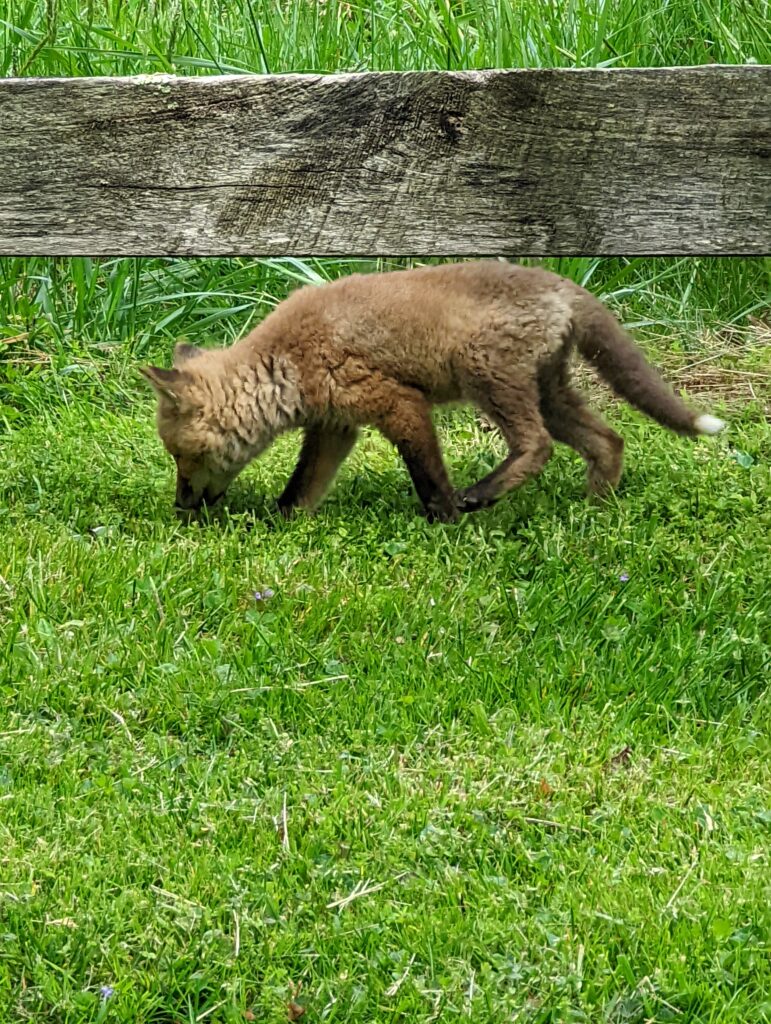
A Kit Explores Not Far From Her Den
Driving the road in the spring is always a delight as many of the flowers blooming along the side of the road also bloom at home in my native plant garden. The Packera aurea (Golden Ragwort) and the Geranium maculatum (Wild Geranium) have really come into their own with these finally warm days we have been having. It’s fun to see what is blooming first, my yard or the roadside!
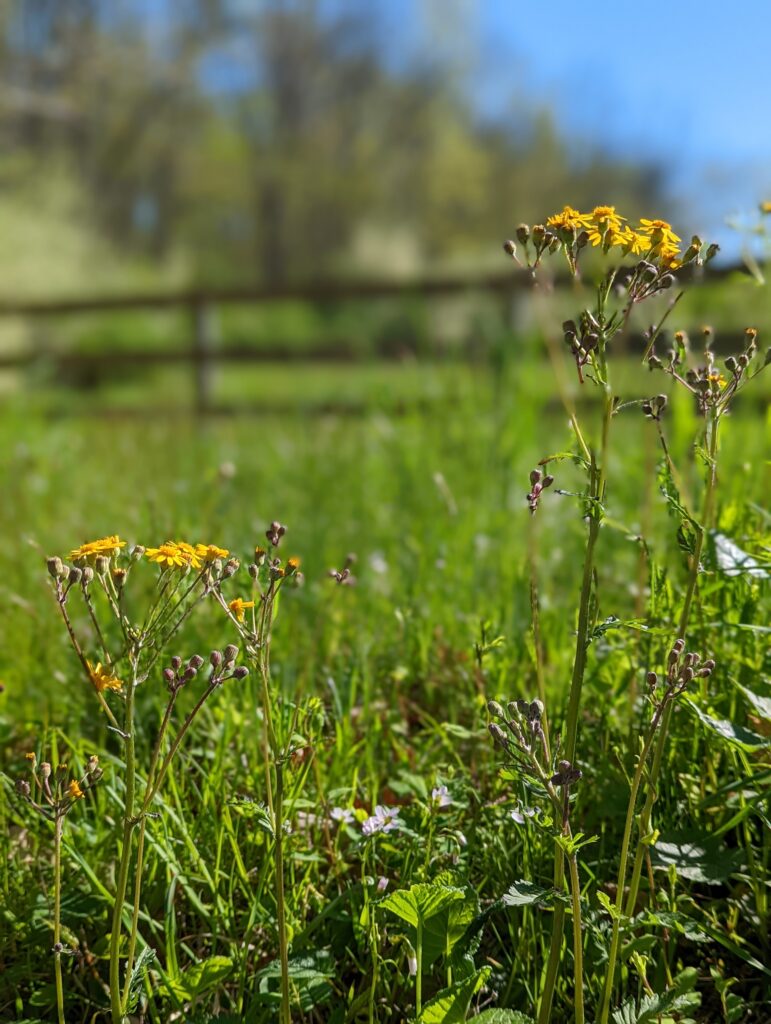
Golden Ragwort on the road
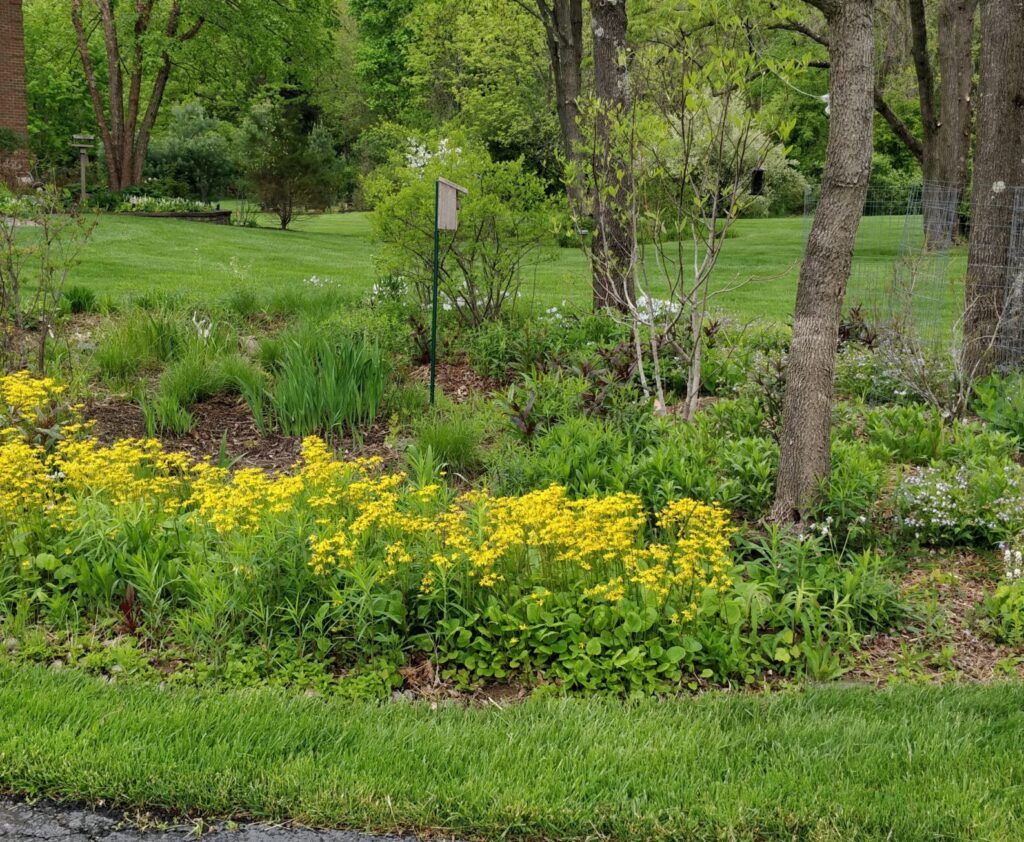
Golden Ragwort in my Raingarden
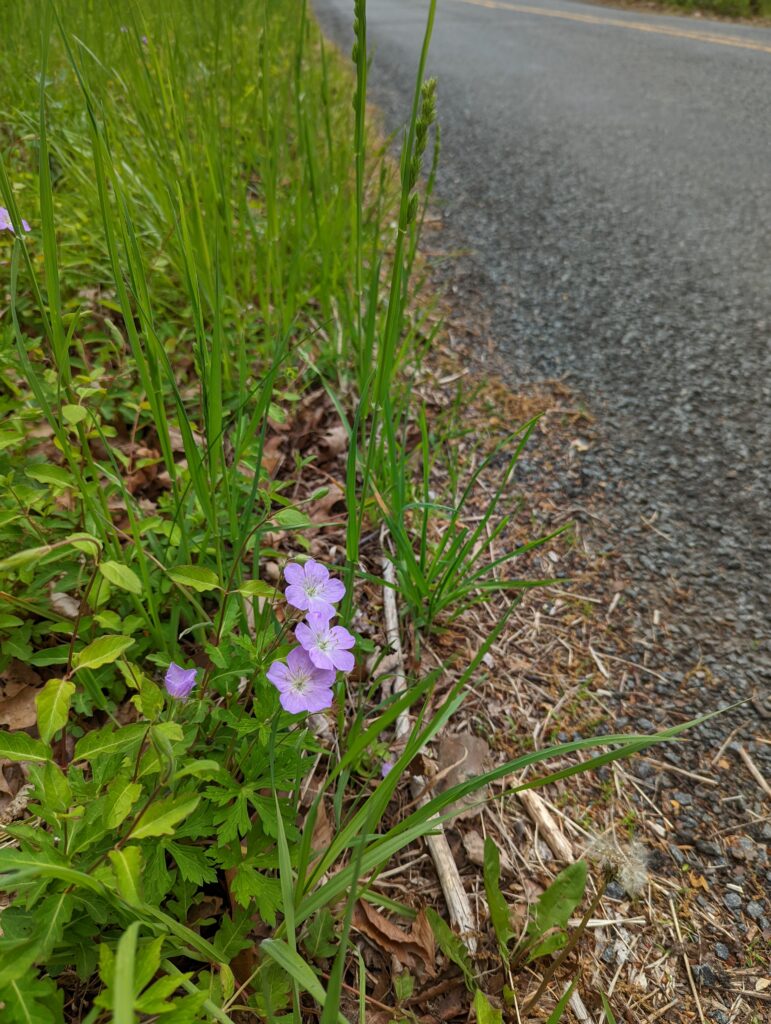
Wild Geranium on the road
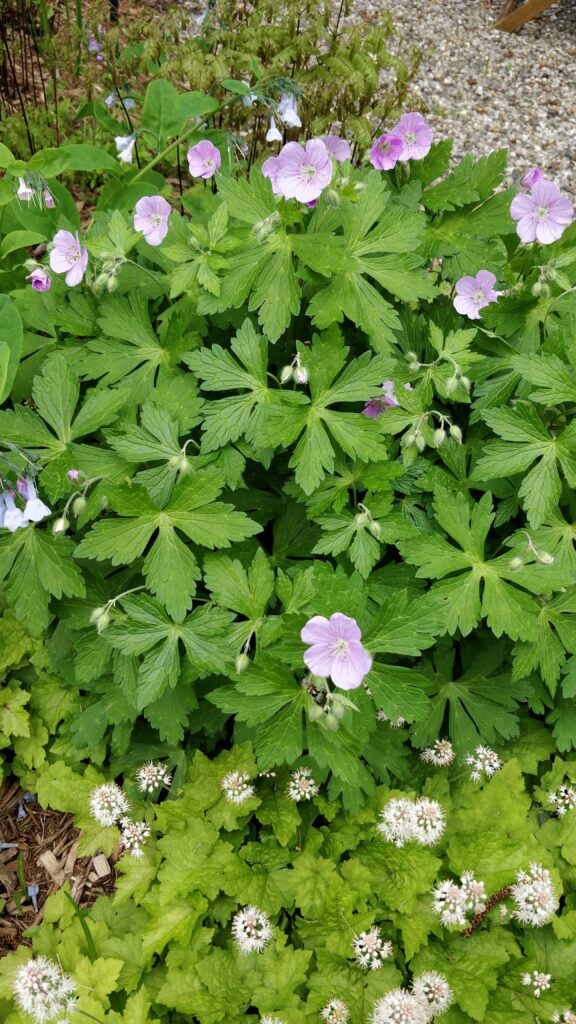
Wild Geranium in My Garden
Especially bright and cheerful are the dainty blooms of the Zizia aurea or Golden Alexander. Bright yellow umbrels that look like fireworks dappling the roadside.
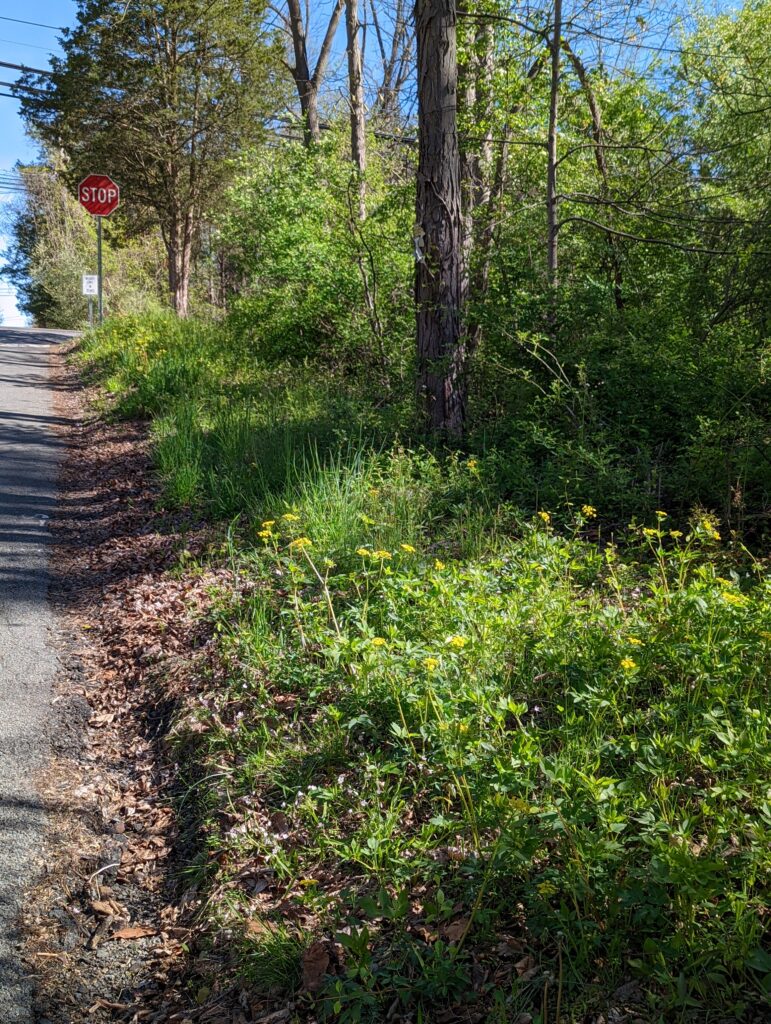
Golden Alexander Along Stony Brook Rd.
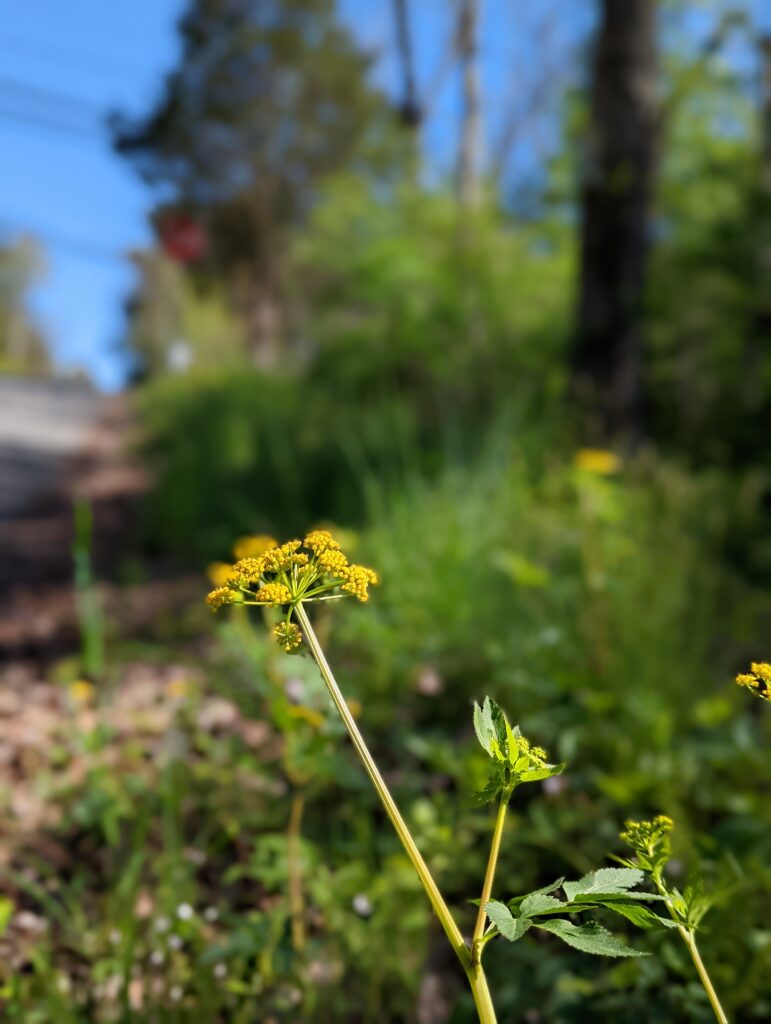
Golden Alexander
Then one day: the flowers were chopped down. Gone. No more, save for the few between the telephone pole and support wire that were spared from the rotating blades.
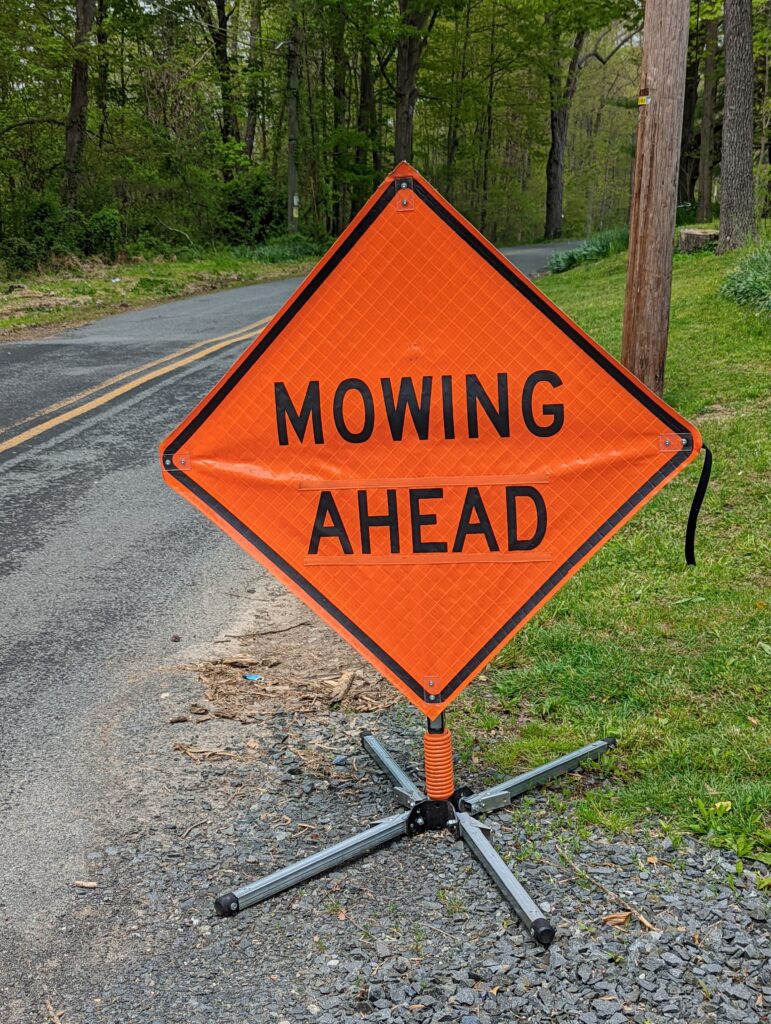
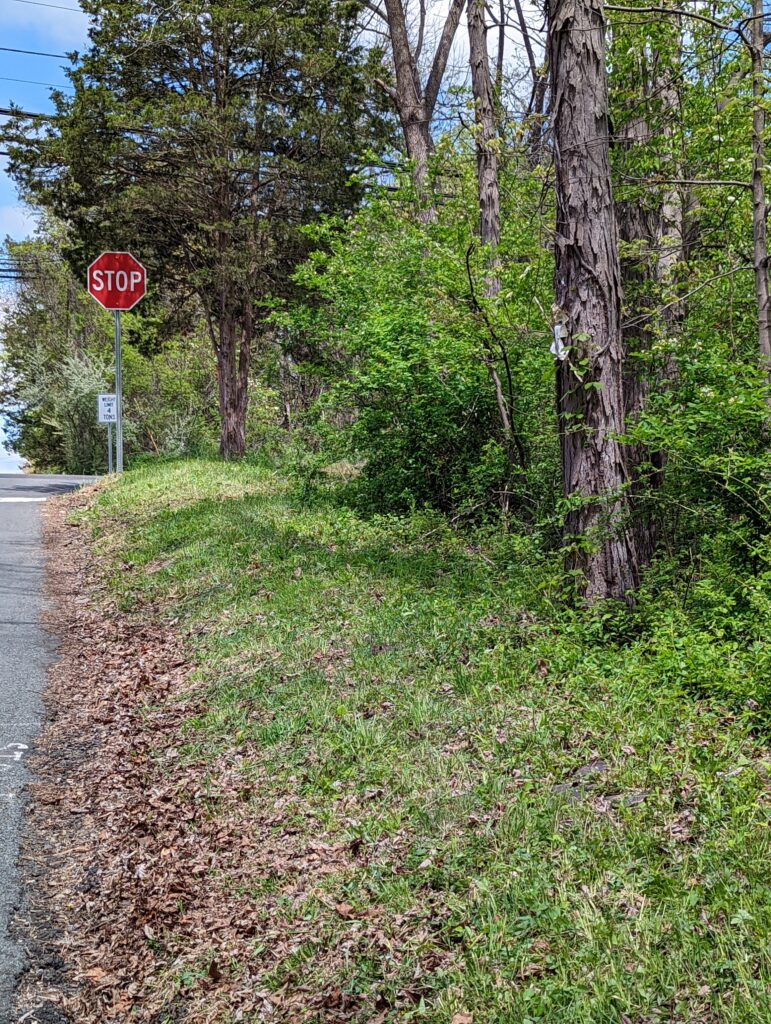
Golden Alexander Blooms are Mowed Down

A Select Few Escaped the Mower
So, not only did my drive just become a lot less colorful, but now food was just erased from the menu for many pollinators. Please see this article from a local naturalist, Mary Anne Borge about the many benefits of Golden Alexander including it being not preferred by deer!!!
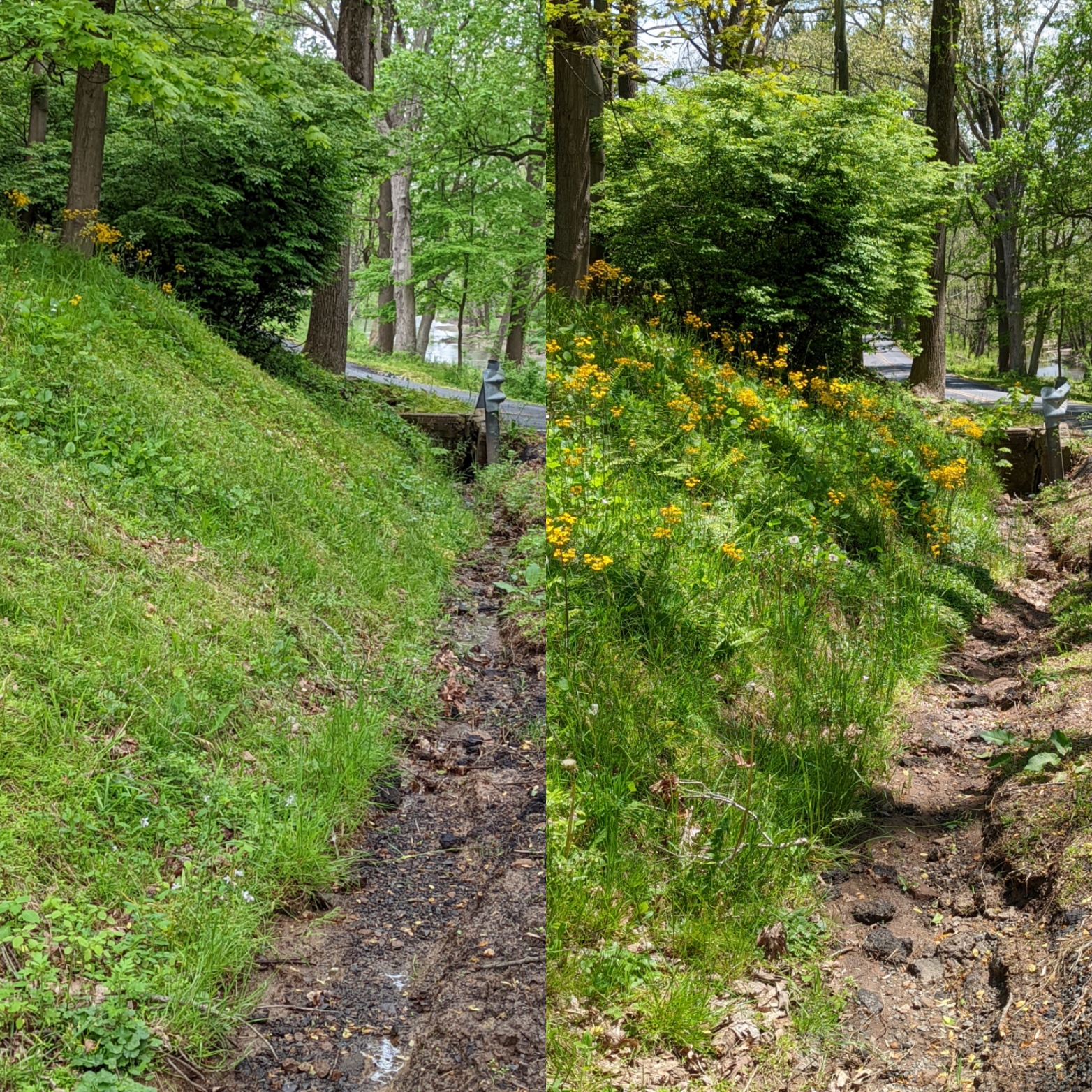
Golden Ragwort that was growing beautifully, now, mowed away
My pit in my stomach grew. I knew the mower still had a good stretch of road to go. What else would go? Here are some examples of additional natives that may get the ax.
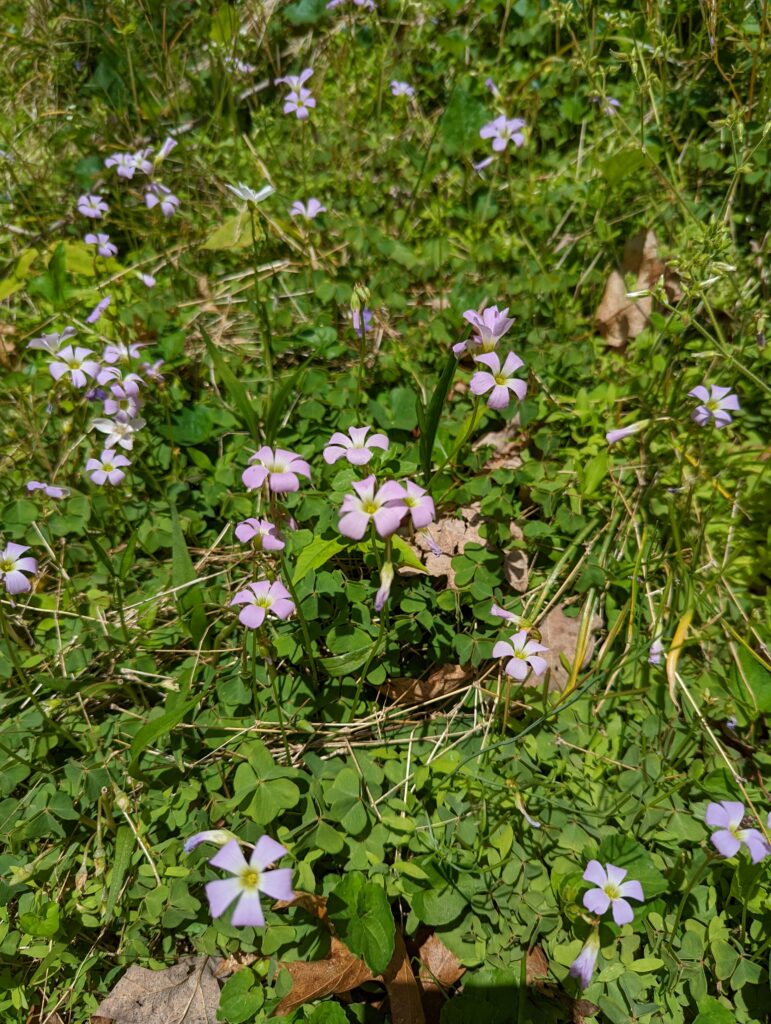
Oxalis violacea, or violet wood-sorrel
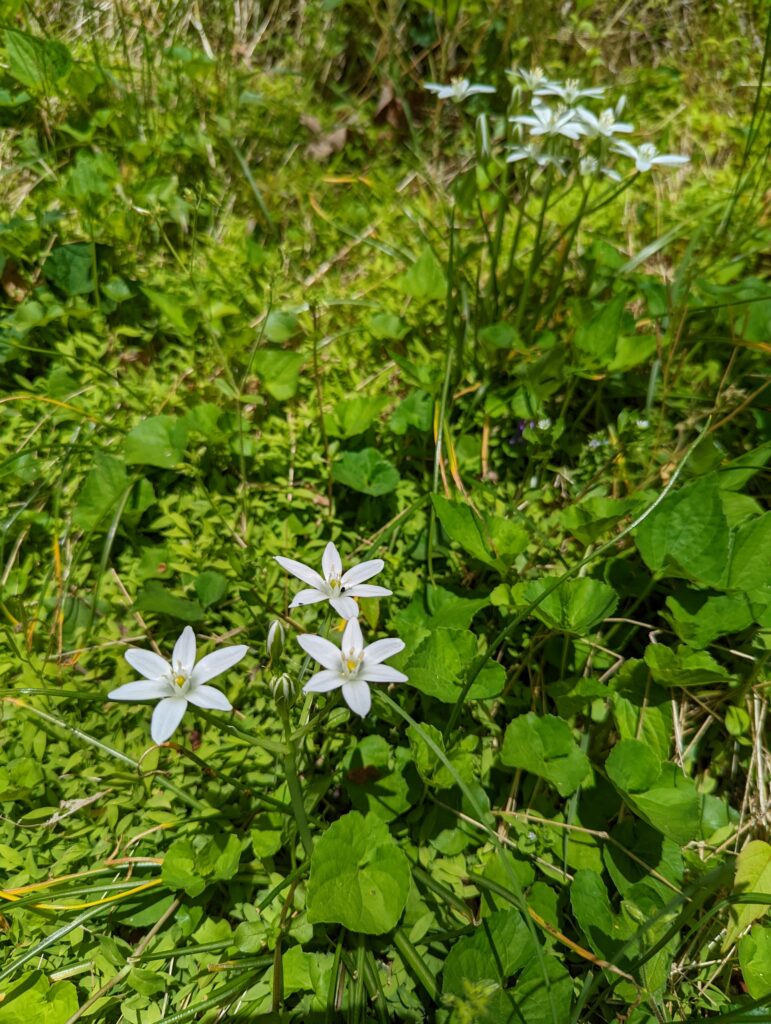
Ornithogalum umbellatum, or common star-of-bethlehem
I just don’t understand people’s obsession with mowers. Everything must go! Weeds, natives, caterpillars. All of it. The pit in my stomach was lessened slightly when I noticed that the mower also skipped over a large patch of native ferns intentionally. Then, the moment this Spicebush Swallowtail circled me a few times, finally landing on the ground allowing me a moment of peace in a mower crazed world. I saw the butterfly on my way home while taking the pictures for this blog. The symbolization of such an astonishing creature stayed with me long after I returned home.

Though I am still not looking forward to my Monday commute. I wish everyone on the planet did No Mow May. Then my commute would be colorful and vibrant again!
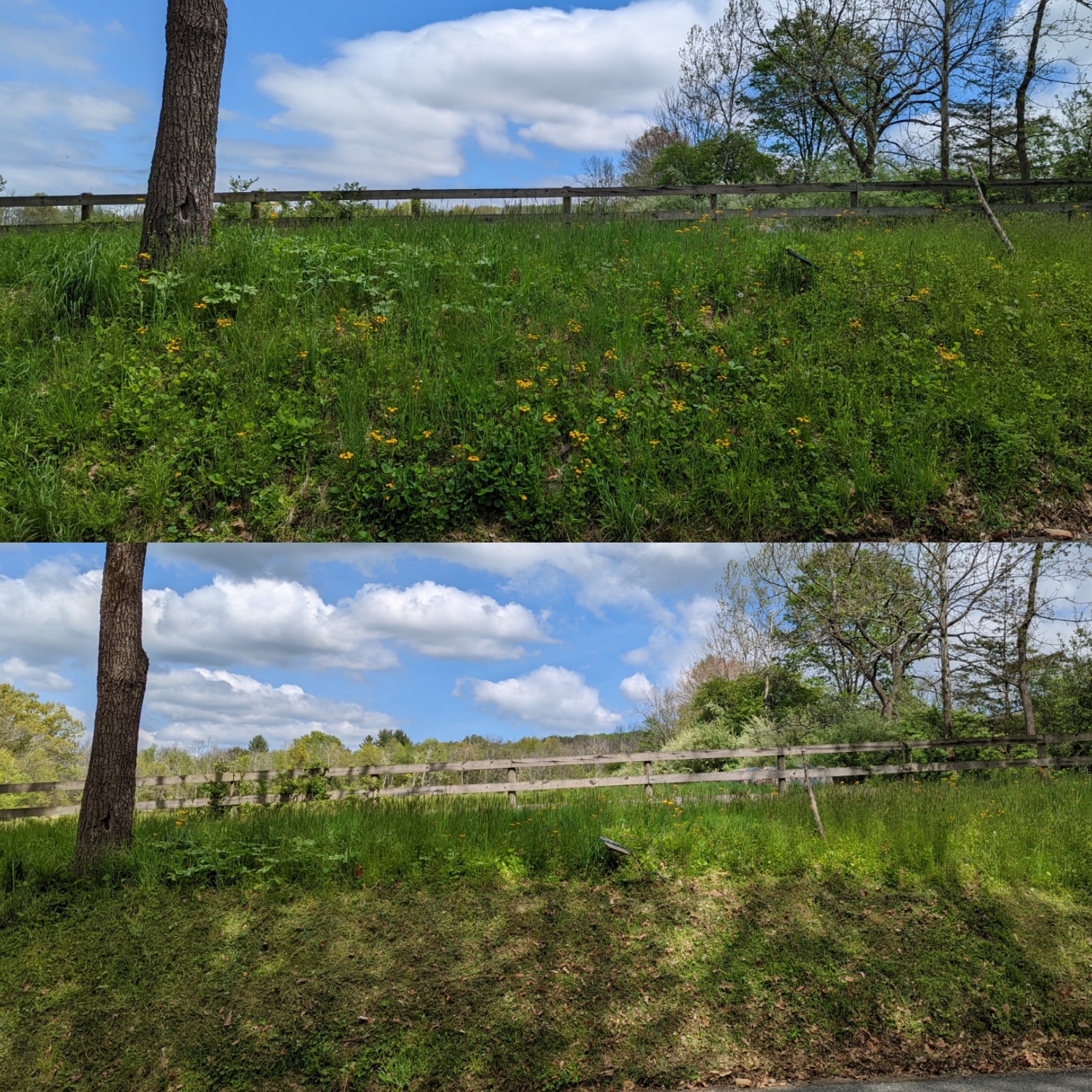
2 Responses
This is a sad truth. The American “neat-and-tidy” ethic eliminating food and shelter for living things while pumping carbon exhaust into the air. I remember seeing huge stands of milkweed along roadsides that are now clearcut. And people wonder what happened to monarchs.
Oh Samantha! I feel your heartbreak. I am stunned by such little regard for our pollinator habitat. I put a sign out designated for Wildlife Habitat on my property from the National Wildlife Federation and that seemed to help.
Stay well!